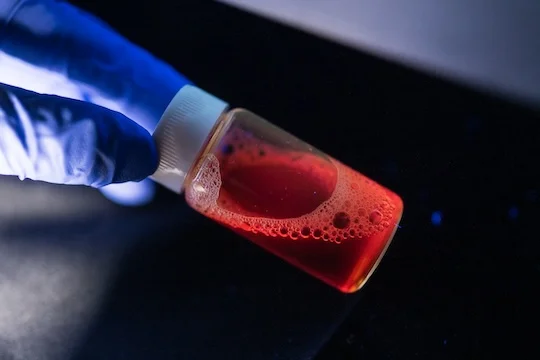One way to develop safer, more-sustainable chemical processes is to substitute potentially harmful chemicals with less-risky alternatives. Organic solvents, which are widely used in industrial processes, can pose health, safety and environmental risks. Researchers at Rice University (Houston, Tex.; www.rice.edu) have found a way to conduct some photocatalytic reactions in water, where that typically would not be possible.
The research team, led by Angel Marti, professor and chair of chemistry at Rice, added light-sensitive metal complexes to surfactants to create metal complex surfactants (MeCSs). Micelles that are formed when the MeCSs are mixed in water form small spaces in their hydrophobic centers, where reactions can take place. Micelles as small as five to six nanometers were achieved by altering the length of the MeCSs’ hydrophobic tails.

Photo by Jeff Fitlow/Rice University.
The team was able to achieve high yields in a photocatalytic reaction in water, without the organic solvent typically needed. The reaction performed was the trifluoromethylation of styrene derivatives. The trifluorination of small molecules is important in the pharmaceutical and agrochemical industries. “These micelles act like tiny reaction vessels,” said Ying Chen, a doctoral chemistry student at Rice. “They enable chemical transformations that wouldn’t normally work in water, while being more sustainable than traditional methods.” The development of these photoactive water-based micelles offers the potential for safer, more environmentally friendly reactions, as well as for cost efficiency, since the system can be reused. This work was published in Chemical Science in February.